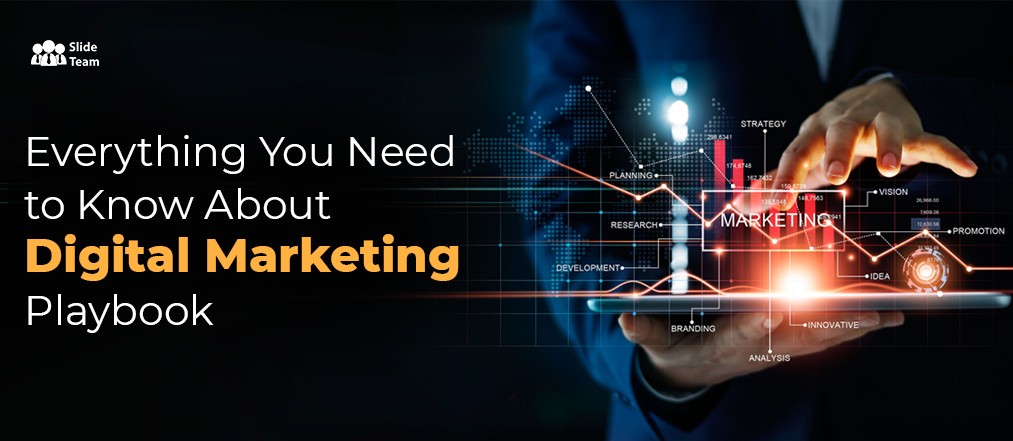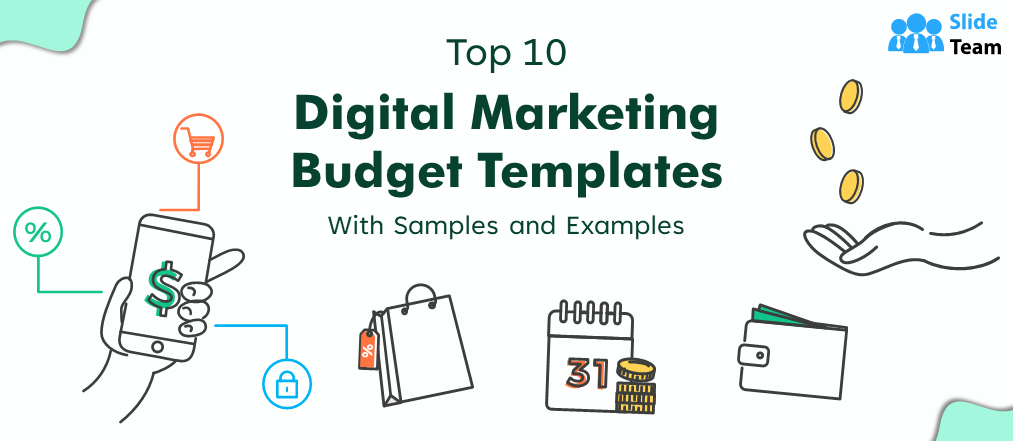The Digital Marketing Landscape has become hot property, as the internet has opened doors for everyone, making it both a fantastic opportunity and a challenge. As a digital marketer, you must recognize that you're up against countless other businesses offering similar services. Ignoring this reality could lower your profits.
In this ultra-competitive scenario, are you ready to stand tall and be the ultimate go-to agency for all things digital? Are you prepared to be the top choice for clients, investors, and stakeholders?
In all probability, the missing piece for you is a solid foundation – a powerful Business Plan for Your Digital Marketing Agency. And that’s what we are here for! We have the perfect solution to help you create a compelling Digital Marketing Agency Business Plan with templates, samples, and examples. Read on! Using this resource, you can let your prospects know why they should choose you. Let them know you can make their business Google, Facebook, Instagram, or YouTube’s favorite.
Best Digital Marketing Agency Business Plan Templates
Table of Contents
- Executive Summary
- Company Overview
- Industry Analysis
- Customer Analysis
- Competitor Analysis
- Swot Analysis
- Porter’s Framework
- Marketing Plan
- Operational Plan
- Financial Plan
- Graphical Representation of Financials
- Management Summary and Exit Strategy
A quick heads Up! This Business Plan Template contains 72 well-researched content-ready pages you can customize or personalize as per your needs. Our comprehensive package incorporates top-notch graphics and visuals, such as tables, charts, bar graphs, flowcharts, and pie charts, designed to present complex information in a clear and concise manner. We, however, will walk you through the 10 slides just to give you a teaser of why this Complete deck is the top choice of marketing leaders worldwide.
You will get the 72-Page Doc, PDF, and XLS Files on Downloading.
1. Executive Summary
The executive summary serves as an introductory overview of your business plan, often written at the end to summarize key sections of the plan. The executive summary template aims to capture the reader's attention swiftly. It provides a clear picture of your digital marketing agency, including its current status – whether it's a startup, a growth-focused agency, or part of a chain of digital marketing agencies.
This executive summary template offers a snapshot of each subsequent section within your plan, presenting a high-level overview of the entire business strategy.
In our Executive Summary section, you will get templates for:
1.1 The Quick Pitch - Unveils the market's vast size and the golden opportunities it presents.
1.2 The Entity - Provides information about your company that includes the following:
(Looking to take your digital marketing strategy to the next level? Explore these Top 7 Digital Marketing Plan Templates that provide the answers you need, helping you transform your ideas into strategic roadmaps and propelling your campaigns to new heights of effectiveness and impact.)
2. Company Overview
Within your company overview, define the specific type of digital marketing agency you operate, be it a Full Service Digital Marketing Agency, SEO Digital Marketing Agency, Social Media Digital Marketing Agency, or Web Design Digital Marketing Agency. Additionally, the company overview should offer background information on the business, addressing key questions, such as:
Inception and Motivation: When and why was the business established? Provide a clear timeline and the driving forces behind its establishment.
Milestones and Achievements: Highlight the milestones accomplished to date, which may encompass the number of clients served, positive outcomes achieved for clients, and landmark moments in terms of clientele served.
Legal Business Structure: Articulate your legal business structure, whether it is incorporated as an S-Corp, an LLC, or a sole proprietorship. Clarify the chosen legal structure and its implications here.
In our Company Overview Section, you will get templates for:
2.1 Vision and Mission - Defining the agency's long-term aspirations and core purpose to guide its strategic direction.
2.2 Company Goals and Objectives - Outlining specific targets and milestones that the agency aims to achieve.
2.3 Start-up Summary - Providing a comprehensive overview of the agency's initial financial requirements and resources.
2.4 Market Gap and Business Statement - Identifying the market gap the agency seeks to address and articulating its unique value proposition.
2.5 Services Offered - Detailing the agency's digital marketing services to its clients.
2.6 Key Success Factors - Highlight critical factors contributing to the agency's success and competitive market advantage.
(Maximize campaign precision and efficiency with our Digital Marketing Brief Templates – your path to crafting clear directives and achieving exceptional results in every digital marketing journey)
3. Industry Analysis
Providing a comprehensive overview of the digital marketing industry is imperative. This serves multiple purposes that are vital to your agency's success. Firstly, researching the digital marketing industry equips you with essential knowledge, enabling a better understanding of the market in which you operate. Secondly, market research empowers you to refine your marketing strategy, especially when identifying and capitalizing on market trends. Thirdly, it showcases your expertise to readers, demonstrating your in-depth knowledge gained through research and analysis.
To ensure a robust industry analysis, address the following key questions:
- What is the size of the digital marketing industry in terms of revenue (in dollars)?
- Is the market experiencing growth or decline?
- Who are the primary competitors?
- Who are the key suppliers that play a significant role in the industry?
- What are the prevailing trends that are influencing the digital marketing landscape?
- What is the projected growth forecast for the industry over 5 – 10 years?
- What is the relevant market size for your agency's specific niche or target segment?
In our Industry Analysis section, we provide comprehensive templates covering:
3.1 Market Analysis - A detailed examination of the digital marketing market, including its size, trends, and key players.
3.2 Market Trends - Insights into the prevailing trends shaping the digital marketing industry crucial for strategic decision-making.
3.3 Major Challenges - Identification and analysis of significant challenges the industry faces, empowering effective risk mitigation.
3.4 Growth Drivers - Exploration of factors propelling growth in the digital marketing landscape, vital for capitalizing on opportunities.
3.5 Geographical Analysis - An in-depth assessment of regional variations and opportunities in the digital marketing sector.
(Ensure financial control and optimized ROI in your digital campaigns using our Top 10 Digital Marketing Budget Templates – expertly designed to streamline your budgeting process and drive strategic resource allocation.)
4. Customer Analysis
Customer analysis is crucial in detailing the specific clientele you serve or expect to serve. This diverse customer base can range from large corporations and small businesses to nonprofits. Each segment has distinct preferences and requirements, with nonprofits responding as per their strengths and weaknesses to marketing promotions compared to large companies.
For an in-depth understanding, break down your target customers based on their demographic and psychographic profiles. Demographics should encompass factors such as age, gender, location, and income levels, providing insights into the potential customers you aim to serve.
Psychographic profiles delve into the desires and needs of your target customers. Understanding these factors enables you to tailor your marketing efforts, attracting and retaining customers with precision and efficacy.
In our Customer Analysis section, we offer comprehensive templates for:
4.1 Target Market - Identifying and defining the specific market segment your digital marketing agency aims to serve.
4.2 Buyer Persona - Creating detailed profiles of your ideal customers, encompassing their preferences, behaviors, and needs.
4.3 Market Sizing - Evaluating the potential market opportunity and determining the size and scope of your target audience.
(Elevate your digital marketing effectiveness with our comprehensive Top 10 Digital Marketing KPI Templates – your guide to tracking, analyzing, and optimizing key performance indicators for measurable success. Streamline your data-driven decision-making and achieve impactful outcomes.)
5. Competitor Analysis
In competitive analysis, it is essential to identify both direct and indirect competitors your business faces. Direct competitors consist of other digital marketing agencies, while indirect competitors encompass alternative options customers may choose, such as social media platforms, apps, and freelancers.
Key information to gather about your competitors includes:
Clientele: Understand the types of clients they serve and the niche they target.
Digital Marketing Agency Type: Identify the specific focus or expertise of each competitor.
Pricing Strategy: Analyze their pricing structure, whether it's premium, low-cost, or in-between.
Strengths and Weaknesses: Assess their areas of expertise and any potential weaknesses.
The final part of your competitive analysis involves documenting your areas of competitive advantage, including:
Diversification: Consider offering non-digital marketing services also to set your agency apart. It can be Print Advertising, Business Cards, or Referrals. Local Events, Trade Shows, etc.
Unique Offerings: Highlight products or services your competitors do not provide.
Exceptional Customer Service: Emphasize your commitment to delivering outstanding customer support.
Competitive Pricing: Demonstrate how your pricing strategy provides better value to clients.
With such a careful evaluation of your competitors and such awareness of your own agency's competitive strengths, you can strategically position yourself in the market and achieve long-term success.
In our Competitor Analysis section, we provide templates for:
5.1 Major Players - Identifying and assessing significant competitors in the digital marketing industry.
5.2 Attributes Comparison - Conducting a comprehensive comparison of key attributes, strengths, and weaknesses among competitors to inform strategic decision-making.
(Unlock your website's full potential with our SEO Audit Report Template – expertly crafted to provide a comprehensive analysis of your site's performance, pinpoint optimization opportunities, and guide you toward achieving higher search engine rankings and improved online visibility.)
6. SWOT Analysis
A SWOT Analysis gives the agency insights into its competitive advantage, areas for improvement, and potential market opportunities. It enables the agency to capitalize on its strengths, address weaknesses, and align its strategies to exploit emerging opportunities while mitigating potential risks. This analytical approach fosters strategic planning, guiding the agency to make informed decisions and craft a robust business plan tailored to its unique position in the digital marketing industry. A well-executed SWOT Analysis sets the foundation for a resilient and competitive Digital Marketing Business Plan for agency ,positioning the agency for long-term success and growth in a highly competitive and ever-evolving market.
Within our Digital Marketing Agency Business Plan, you will discover an extensive and comprehensive SWOT analysis that misses nothing.
(Drive unparalleled growth with our Top 10 PPC and Adwords Proposal Templates – the ultimate toolkit for crafting compelling proposals that outline strategic pay-per-click campaigns, ensuring optimal ad spend utilization, targeted audience engagement, and measurable ROI. Secure client trust with data-backed proposals that pave the way to PPC success.)
7. Porter’s Framework
This framework, consisting of Porter's Five Forces and Value Chain Analysis, allows the agency to gain valuable insights into industry dynamics, competitive landscape, and value creation processes.
Porter's Five Forces: This analysis assesses competitive forces at play in the digital marketing industry, including the threat of new entrants, the bargaining power of buyers, the bargaining power of suppliers, the threat of substitutes, and the intensity of rivalry among competitors. Understanding these forces helps an agency identify potential challenges and opportunities, enabling strategic planning for sustained success.
Value Chain Analysis: This framework delves into the agency's internal operations and processes, examining each step in the value creation chain. By analyzing the primary and support activities, the agency can identify areas of efficiency, cost-effectiveness, and potential for differentiation, ultimately enhancing its value proposition to clients.
Download this Business Plan now!
8. Marketing Plan
In a digital marketing agency business plan, the marketing strategy extends beyond the traditional four Ps (Product, Price, Place, and Promotion). Here's how you should craft your marketing strategy:
Product: Reiterate the type of digital marketing agency outlined in the company overview and provide specific details of products or services you offer. Whether it's website design, SEO management, social media management, or public relations, clearly outline your offerings.
Price: Document the pricing structure and compare it to competitors. In this section, you present the products/services you offer and their corresponding prices.
Place: Define the physical location of your digital marketing agency and explain how site selection will impact your success. Whether it's a bustling retail district, a corporate business area, a standalone office, or a virtual presence, emphasize why it's an ideal location for your customers.
Promotion: The final part of the marketing plan involves driving potential customers to your agency's location(s). Consider promotional methods, such as advertising in local media, engaging with websites, distributing flyers, implementing email marketing campaigns, leveraging social media platforms, and optimizing your website's SEO for targeted keywords.
In our Marketing Plan section of the business plan, you will find templates for:
8.1 Sales Strategy - A comprehensive plan outlining the approach to drive sales and achieve revenue targets.
8.2 Promotional Strategy - Strategies and tactics to promote the digital marketing agency's services.
8.3 Pricing Strategy - A well-defined approach to setting competitive and profitable service pricing.
8.4 Sales Funnel - A step-by-step framework to guide prospects through the sales process and convert them into loyal customers.
(Convert leads into loyal customers with our Top 10 Sales Funnel Templates – a strategic resource to streamline your customer journey, enhance engagement, and maximize conversion rates.)
9. Operation Plan
The Operations Plan of your business plan outlines strategies to achieve your goals effectively. It comprises two distinct sections:
Everyday Short-Term Processes: This section encompasses the day-to-day tasks involved in operating your digital marketing agency business. These tasks encompass client communication, advertisement campaign planning and scheduling, staff meetings, client billing, and other operational activities.
Long-Term Goals: Here, you outline the milestones you aspire to achieve. These may include specific targets such as booking several sessions, reaching a specific revenue milestone, or expanding your digital marketing agency to a new city. This section focuses on the strategic planning necessary to propel your agency toward long-term success and growth.
Download this Business Plan now!
10. Financial Plan
The Financial Plan is a crucial component of your business plan, detailing a comprehensive five-year financial statement presented both monthly or quarterly for the first year and then annually. This section encompasses essential statements such as the income statement, balance sheet, and cash flow statements, providing a comprehensive view of your agency's financial health and projections over the specified period. Through these statements, you can analyze your agency's profitability, assets, liabilities, and cash flow, enabling you to make informed financial decisions and set strategic goals for sustainable growth.
In our Financial Plan section, you will find templates for:
10.1 Financial Assumptions - Detailed assumptions driving the financial projections for your digital marketing agency business.
10.2 Revenue Model and Sales Forecast - A comprehensive model outlining your agency's revenue sources and sales projections over time.
10.3 Break-Even Analysis - An analysis determining the point at which your agency's total revenue covers total costs, indicating the level of sales needed to reach profitability.
10.4 Projected Profit and Loss Account - A financial statement displaying your agency's projected revenues, expenses, and net profit over a specified period.
10.5 Projected Cash Flow Statement - A statement presenting the expected cash inflows and outflows for your agency, allowing you to manage liquidity well.
10.6 Projected Balance Sheet - A financial snapshot showcasing your agency's assets, liabilities, and shareholders' equity projected over time.
10.7 Scenario Analysis - An assessment of scenarios to understand the financial impact of business conditions or potential risks.
10.8 DCF Valuation - A discounted cash flow analysis used to determine the present value of your agency's future cash flows.
Download this Business Plan now
11. Graphical Representation of Financials
The integration of graphical representations in presenting financial data within a business plan offers a powerful tool for conveying complex financial information in a visually accessible manner. Graphs, charts, and diagrams provide an instant overview of trends, patterns, and key financial metrics. These visuals enhance the reader's comprehension of financial performance, projections, and comparisons, enabling quick identification of critical insights.
Our Business Plan will provide you with the most comprehensive and consolidated graphs. Whether illustrating revenue growth, cost distribution, or profit margins, our graphical representation templates will help you showcase a digital marketing agency's financial health and trajectory. Using these visuals will not only enhance the overall clarity of financial data but also bolster the credibility of the business plan, demonstrating a thorough and insightful approach to financial analysis and reporting.
Download this Business Plan now
12. Management Summary and Exit Strategy
Including a comprehensive management summary and a well-defined exit strategy in a digital marketing agency business plan is paramount. The management summary succinctly presents the key individuals responsible for steering the agency's operations, expertise, and roles. This gives potential investors and stakeholders a clear understanding of the agency's leadership and capabilities.
In our Management Summary Section, you will find templates for:
12.1 Organizational Structure - A clear outline of the hierarchical arrangement and roles within your digital marketing agency.
12.2 Professional Summary - Concise profiles of key team members, highlighting their expertise and contributions.
12.3 Job Roles and Responsibilities - Comprehensive descriptions of various roles and their corresponding responsibilities within the agency.
Additionally, the exit strategy outlines the roadmap for potential transitions, acquisitions, or liquidations, demonstrating foresight and accountability. This strategic component reassures investors by showing that the agency has considered different scenarios, further enhancing its credibility and long-term sustainability in the dynamic digital marketing landscape.
Download this Business Plan now
Additional Valuable Content Beyond What You've Seen So Far
This was just a sneak peek! Upon download, you'll gain access to comprehensive graphs, tables, charts, and vital visuals to craft a winning business plan that impresses clients and stakeholders. The package includes a consolidated management summary covering organizational structure, professional summary, and job roles & responsibilities. Additionally, you'll receive content-ready documents for Exit Strategy and an Abbreviation Page. Our Digital Marketing Company Business Plan is the ultimate solution to overcome all challenges in drafting your plan. Download our business plan ppt now and make it an invaluable asset in your business journey.
FAQs on Digital Marketing Agency Business Plan
How to create a business plan for a digital marketing agency?
To create a business plan for a digital marketing agency, start by outlining your agency's vision, mission, and goals. Conduct thorough market research to understand the industry, target audience, and competition. Define your services, pricing strategy, and revenue model. Develop a marketing and sales strategy to attract clients. Include a financial plan with projected income statements, balance sheets, and cash flow statements. Lastly, outline your operations plan, including short-term processes and long-term goals. If you want the best assistance for this, you can use SlideTeam’s Digital Marketing Agency Business Plan Template.
What should I offer as a digital marketing agency?
As a digital marketing agency, you should offer a range of services tailored to your clients' needs. These may include search engine optimization (SEO), social media management, pay-per-click (PPC) advertising, content marketing, email marketing, web design, and analytics and reporting. Tailor your offerings based on your expertise, target market, and the demands of your clients.
Is a digital marketing agency a good idea?
Yes, starting a digital marketing agency can be a lucrative and rewarding venture. With increasing reliance on digital platforms for businesses, there is a growing demand for effective online marketing services. However, success in this competitive industry requires a strong business plan, specialized skills, and a thorough understanding of the digital landscape.
How do I build a successful digital agency?
To build a successful digital agency, focus on these key aspects:
- Define a clear niche and target audience to differentiate your agency.
- Offer high-quality and result-driven services to build a reputation for excellence.
- Invest in continuous learning and stay updated with the latest digital marketing trends.
- Build a strong online presence and showcase your expertise through content marketing.
- Cultivate strong relationships with clients and provide exceptional customer service.
- Collaborate with other professionals and agencies to expand your network and capabilities.
- Monitor and measure the effectiveness of your strategies to improve performance and deliver value to your clients.


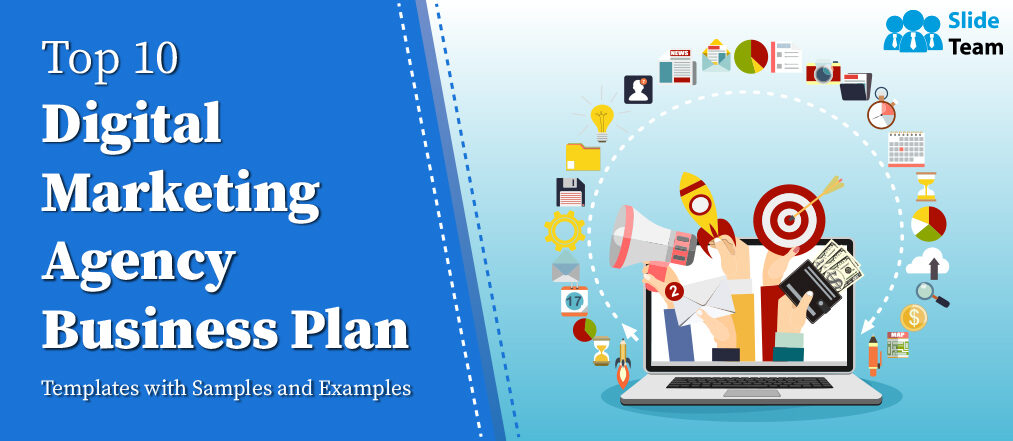
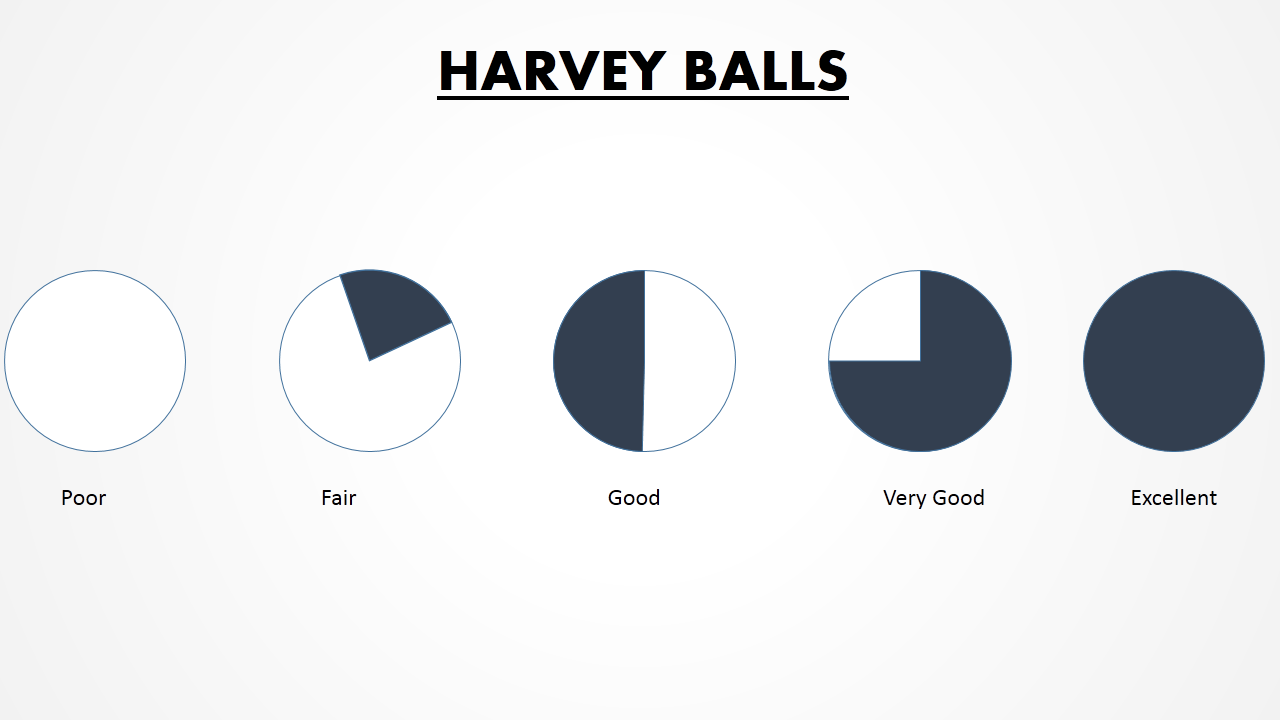

 Customer Reviews
Customer Reviews

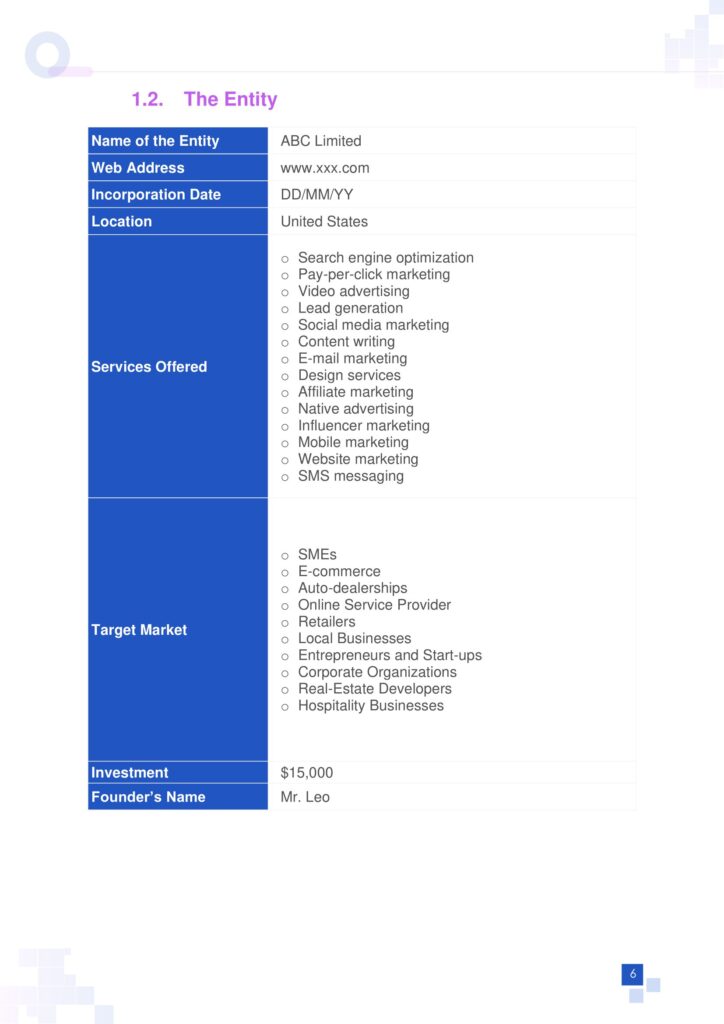
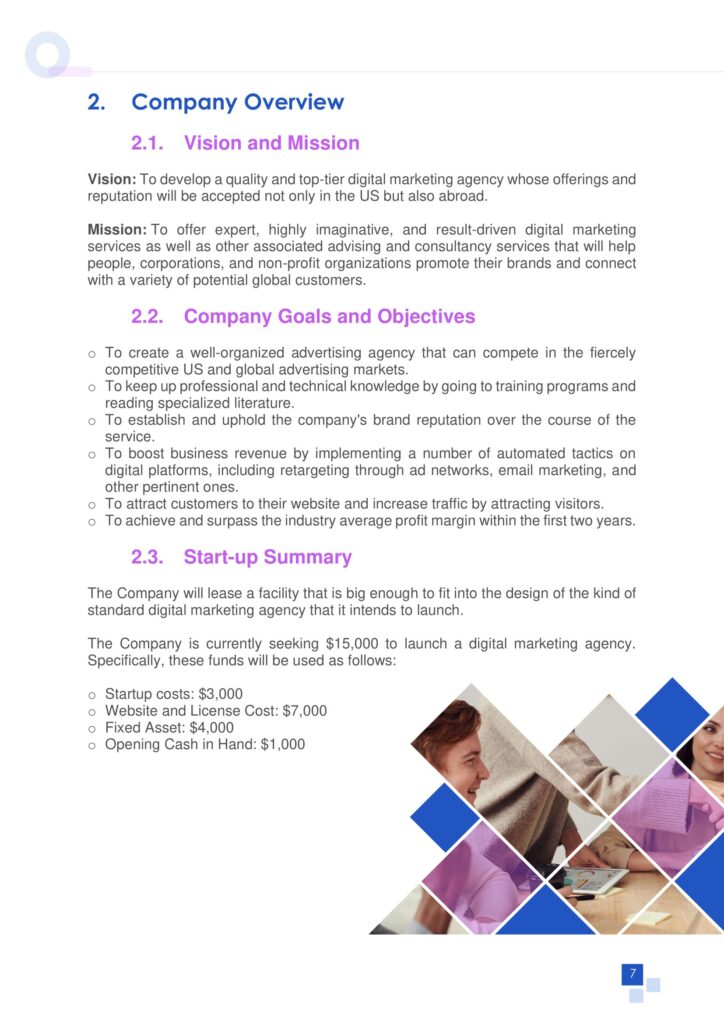
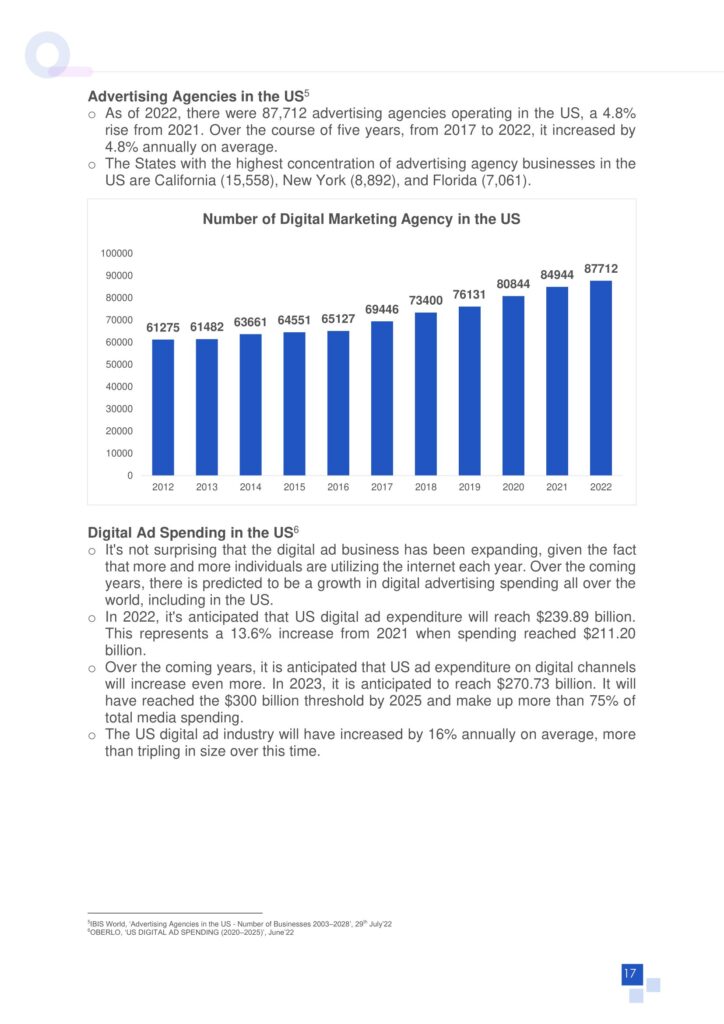
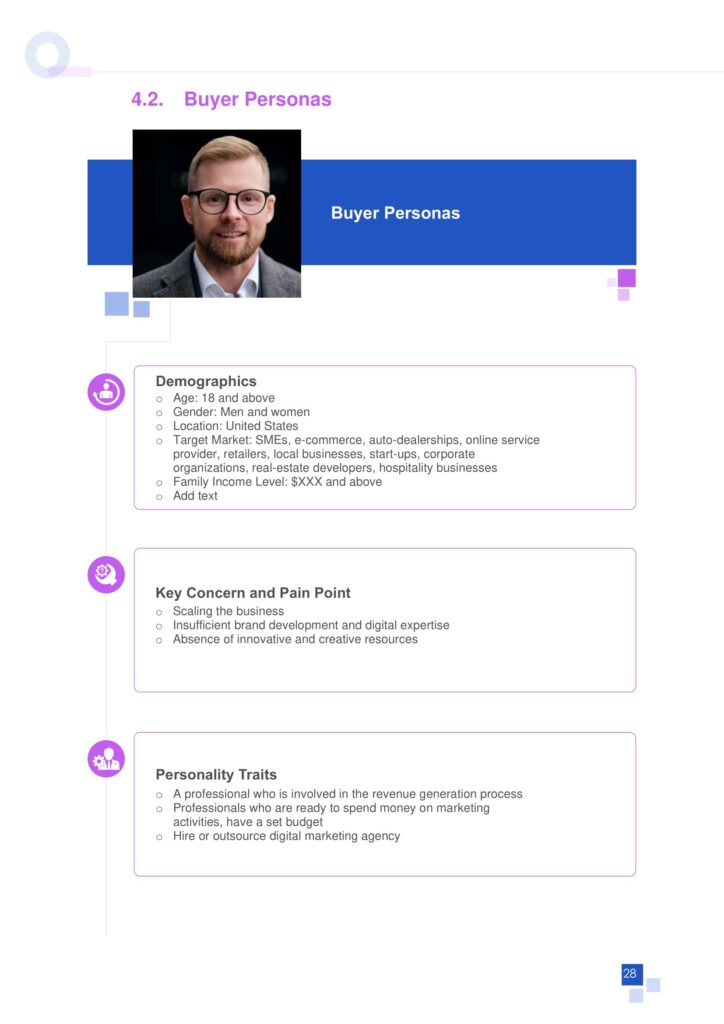
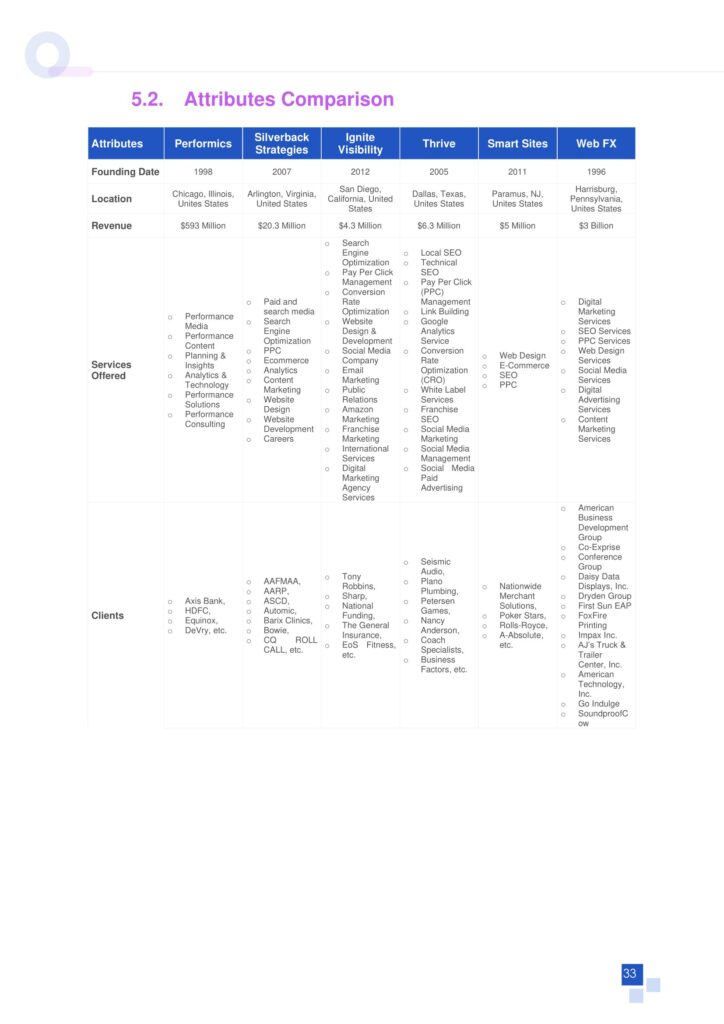
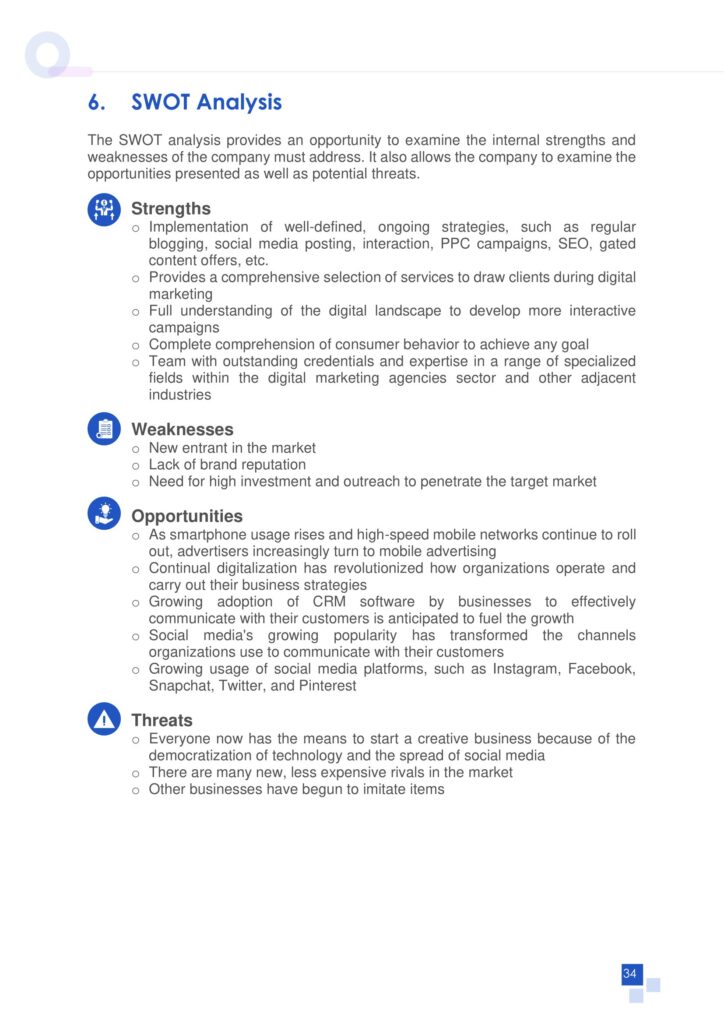
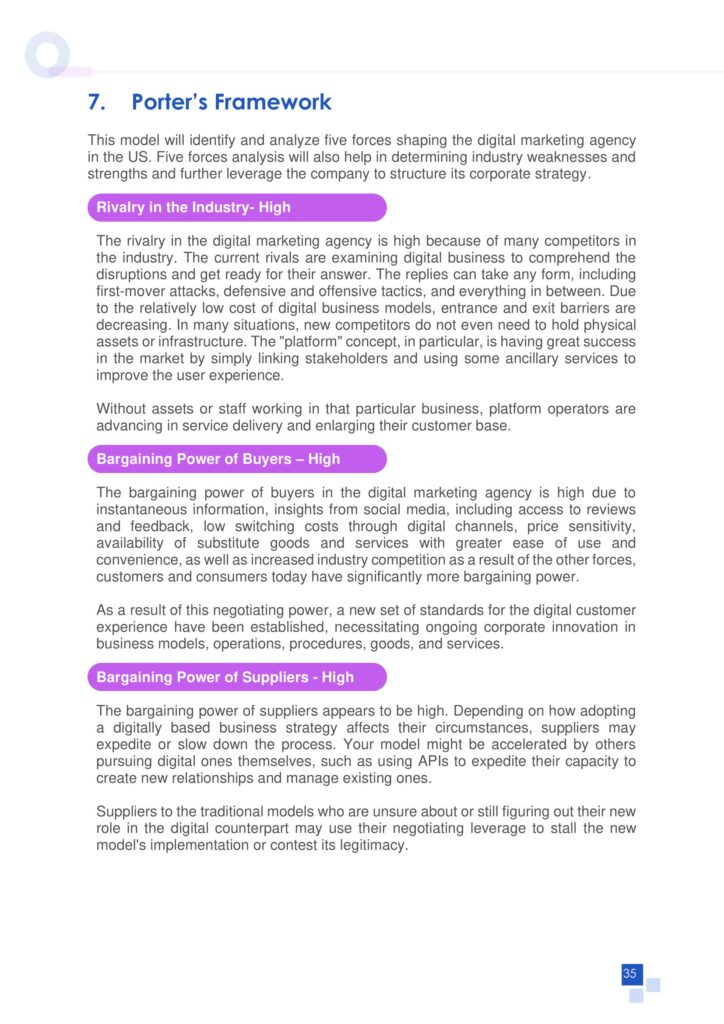
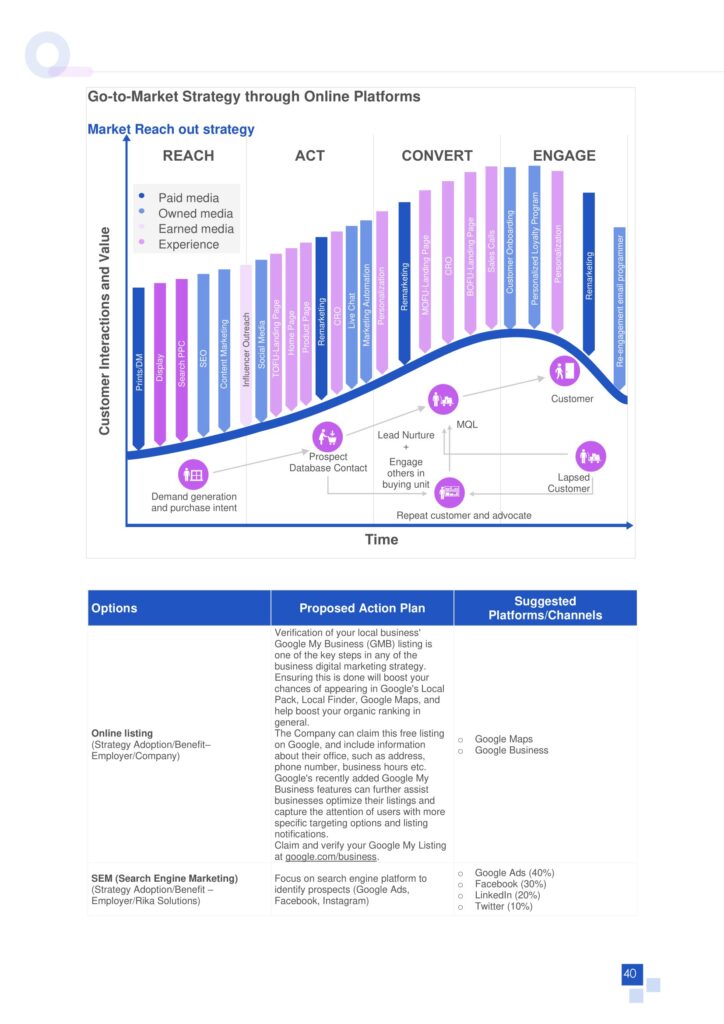
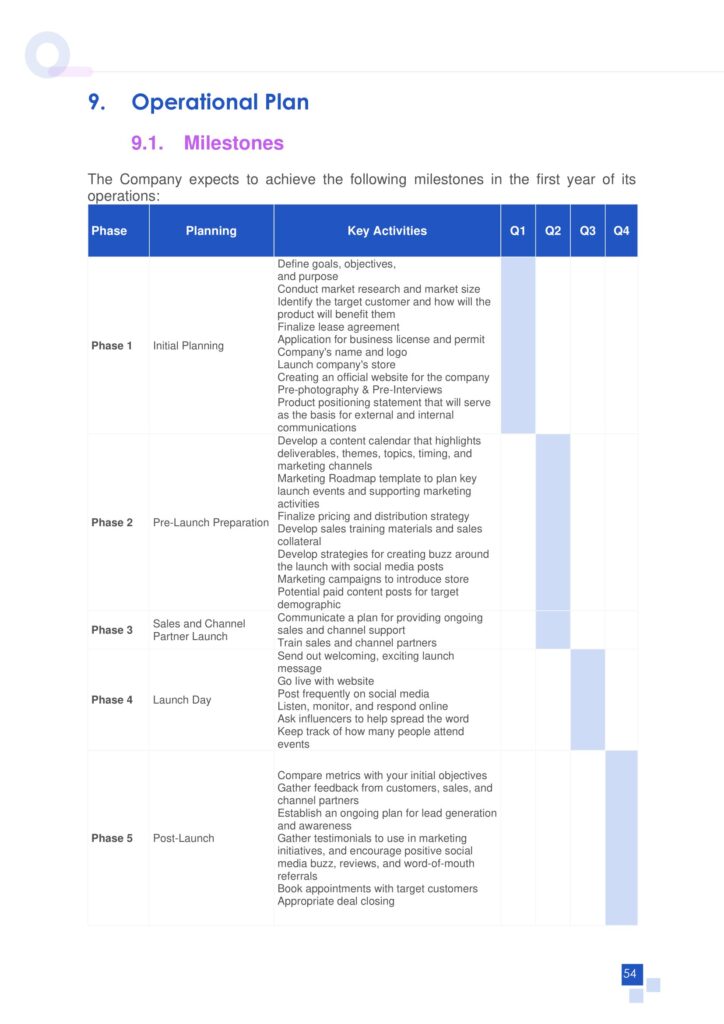
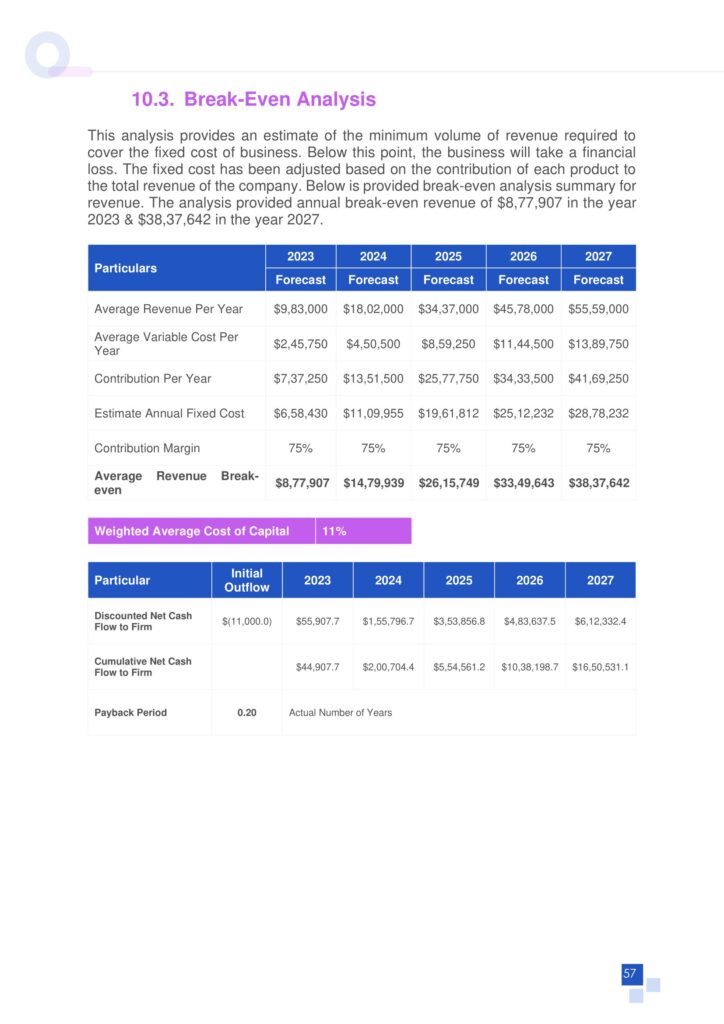
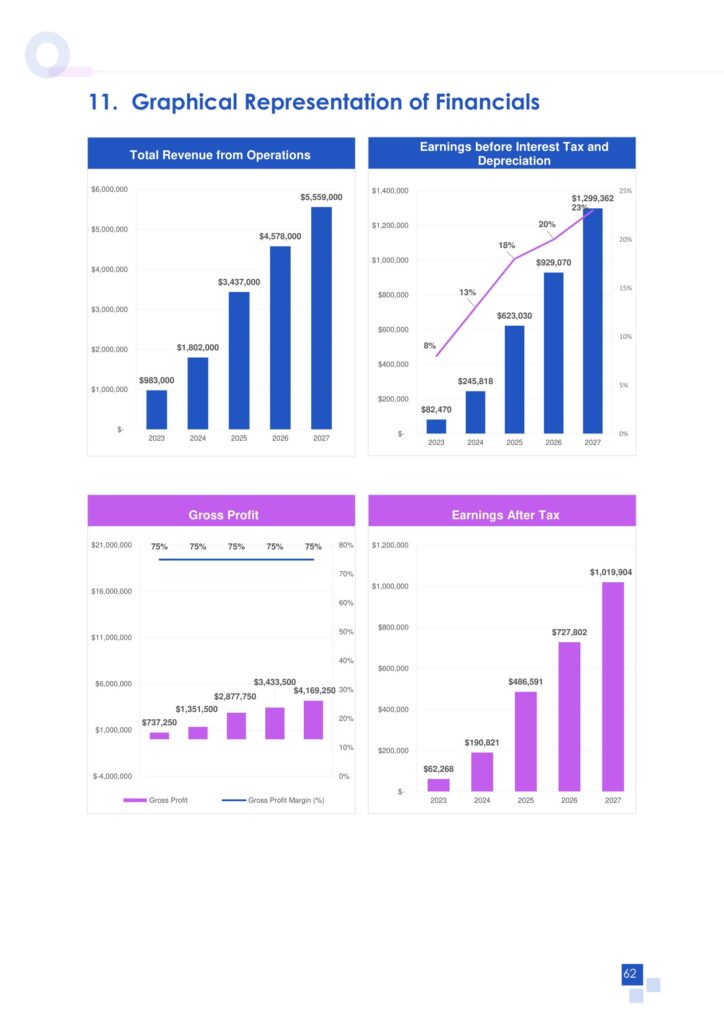
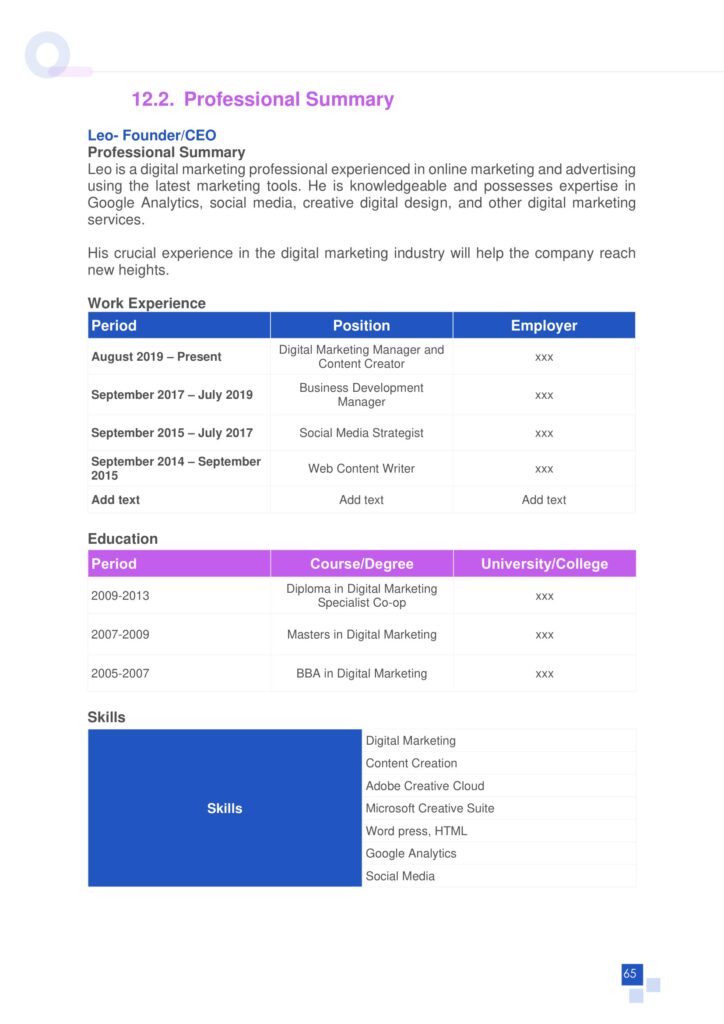



![[Updated 2023] Top 10 Digital Marketing Report Templates That Every Marketer Needs](https://www.slideteam.net/wp/wp-content/uploads/2021/11/with-logo-2-1013x441.jpg)
